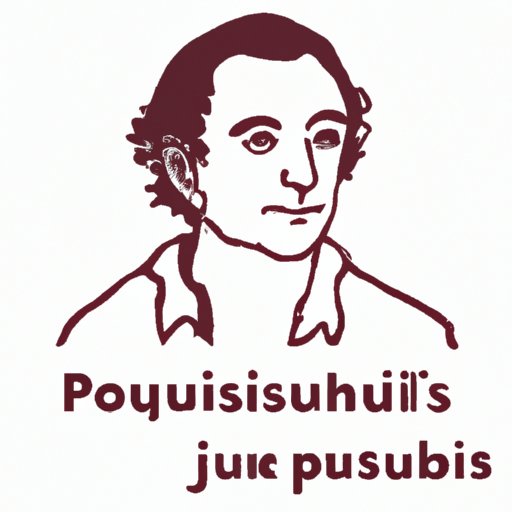Exploring the Ideas of Jean Jacques Rousseau: Unpacking His Complex Legacy
Jean Jacques Rousseau was an 18th-century philosopher, writer, and musician known for his contributions to the Enlightenment. His ideas have influenced political and social thought for centuries, yet his legacy remains controversial and multifaceted. Some see him as a champion of liberty and equality, while others criticize his ideas as unrealistic and contradictory. This article aims to explore the various dimensions of Rousseau’s philosophical works, unpacking his most significant ideas and their legacy.
Unpacking Jean Jacques Rousseau’s Ideas: An Overview of His Philosophical Works
Rousseau’s philosophical works include books such as “Discourse on the Origin and Basis of Inequality Among Men” and “The Social Contract.” In these books, he critiques the existing social and political order, suggesting that humanity was once free and equal and could return to that state through radical restructuring.
The key themes that run throughout Rousseau’s writings include the idea that humans are naturally good, that social institutions have corrupted that goodness, and that humans can only regain their natural freedom through a collective transformation. Rousseau also spoke of the importance of education, arguing that society ought to raise children in a way that allows them to retain their natural goodness.
What Did Jean Jacques Rousseau Really Believe?: Examining His Controversial Ideas
One of Rousseau’s most debated and controversial ideas is that of the “noble savage.” Rousseau argued that humans are naturally peaceful, egalitarian, and cooperative, and that it is social institutions that turn them violent, selfish, and competitive. This viewpoint has been criticized for romanticizing pre-modern societies and failing to account for historical violence and injustice.
Rousseau’s views on education were also significant, as he believed that children should be raised to be self-reliant, self-motivated, and free from societal expectations. Some have argued that this idea is unrealistic, while others suggest it promotes a healthy skepticism of authority.
Additionally, his concept of the Social Contract, which asserts that the legitimacy of the state is based on a contract between the citizens and the government, has been influential in political thought. His notion that people have the right to overthrow the government if it violates this contract has been particularly impactful in the world of social justice movements.
The Contradictions of Jean Jacques Rousseau: A Critical Analysis of His Writings
As with any philosophical work, Rousseau’s ideas are not immune to logical contradictions. Some argue that his notion of the “noble savage” is at odds with his critique of modern society, and that his ideas about education are idealistic and do not take societal structures into account. Others suggest that his work can be read in multiple ways, and that it is up to the reader to decide which interpretation is most persuasive.
Moreover, Rousseau’s theories have resulted in a variety of different movements, including anarchism, feminism, and socialism. This broad range of interpretations is both a testament to the richness of his ideas and a challenge for those seeking to understand his views.
Jean Jacques Rousseau’s Legacy: How His Ideas Shaped Modern Society
Rousseau’s ideas have had an enormous impact on modern philosophy and political thought. His critique of political and social inequality has influenced movements for social justice and political reform.
His beliefs in education have also persisted into the present day, particularly in the field of Montessori education, which emphasizes self-directed learning and child-centered pedagogy.
Beyond the Social Contract: The Lesser-Known Ideas of Jean Jacques Rousseau
While Rousseau is most famous for his political ideas, he also had a deep appreciation for the arts. He believed that music was a fundamental part of human nature and that it could awaken latent emotions and inspire people to connect with each other. Additionally, Rousseau emphasized the importance of natural environments, believing that humans should seek to live in harmony with nature and not destroy it.
Conclusion
Overall, Jean Jacques Rousseau’s ideas have continued to exert a significant influence on modern philosophy and political thought. His critique of modern institutions and emphasis on the natural goodness of humanity has contributed to movements for social justice and political reform. Although his work is not without its contradictions and challenges, Rousseau remains a fascinating and complex figure whose contributions to society have been substantial.
